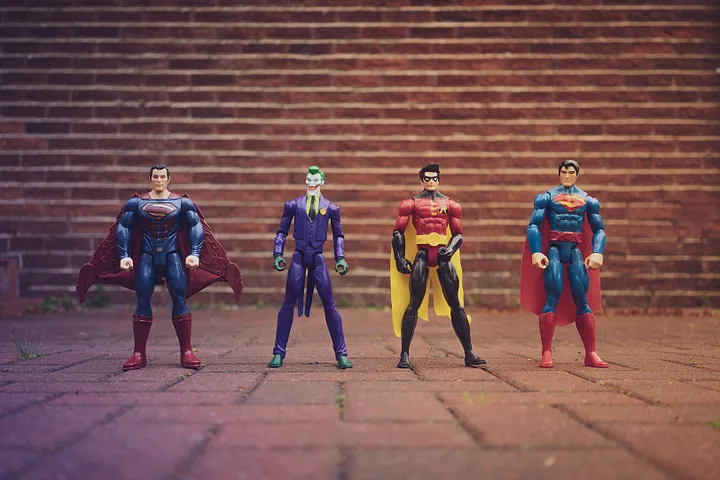 Going to an all-boys school, joining the hockey team at uni and watching Hollywood movies gave me a very clear idea of how men are supposed to behave. This included:
Going to an all-boys school, joining the hockey team at uni and watching Hollywood movies gave me a very clear idea of how men are supposed to behave. This included:
- Drinking vast quantities of alcohol, quickly.
- Sleeping with as many women as possible.
- Making as much money as possible.
- Owning a big, fast car.
- Only showing two emotions: anger and lust. Never showing vulnerability or crying.
- Being good at sport.
- Being physically big and strong (with a large penis, of course).
- WINNING.
- Never showing any verbal or physical affection towards another man, and telling your friends you like them by mocking them.
Most of these things aren’t intrinsically bad. It’s fine to like cars, money and sex. But being made to feel like this is the only way to be is what’s damaging and limiting. It makes people feel inferior or even ashamed when they’re not like that.
I had an allergic reaction to all of this. I hated it. As I think most men do, if they’re being really honest.
Apart from anything else, it just didn’t make sense to me. It’s not conducive to happiness.
Through my work, I’ve ended up coaching people – both men and women – in corporate, macho cultures, where people are competitive, aggressive and don’t show any vulnerability.
I’ve wondered whether maybe, in these places, it does pay to act like that.
We tested it. Through the coaching, I supported them to be more willing to feel and express their emotions, and be kinder to themselves and their colleagues. Less competitive and more cooperative. Less directive and more supportive and able to listen.
The result – every time – has been that they performed better in their role, got more out of their colleagues and felt happier. Sometimes, quite severe symptoms of stress and anxiety lifted completely.
The old machismo doesn’t work.
It leads to poor mental health, poor relationships and poor performance.
Perhaps the most easily identifiable example of this is Donald Trump. Although I have written about how I understand why people voted for him, to me he’s a caricature of an outdated form of machismo, and it made him a terrible president and a terrible role model.
These experiences and observations have contributed to me suppressing my own masculinity.
What I’m starting to explore now is healthier ways to express it. I’m very much at the beginning of this journey, but I feel excited about how it will help me to be more fully myself, and to understand how we can undo the damage caused by patriarchy and toxic masculinity.
Yesterday, I came across ManKind Project's Vision of Mature Masculinity. I love it, and I know it is going to form part of my redefining of what it means for me to be a man. I want to share it with you:
The New Macho
He cleans up after himself.
He cleans up the planet.
He is a role model for young men.
He is rigorously honest and fiercely optimistic.
He holds himself accountable.
He knows what he feels.
He knows how to cry and he lets it go.
He knows how to rage without hurting others.
He knows how to fear and how to keep moving.
He seeks self-mastery.
He’s let go of childish shame.
He feels guilty when he’s done something wrong.
He is kind to men, kind to women, kind to children.
He teaches others how to be kind.
He says he’s sorry.
He stopped blaming women or his parents or men for his pain years ago.
He stopped letting his defences ruin his relationships.
He stopped letting his penis run his life.
He has enough self-respect to tell the truth.
He creates intimacy and trust with his actions.
He has men that he trusts and that he turns to for support.
He knows how to roll with it.
He knows how to make it happen.
He is disciplined when he needs to be.
He is flexible when he needs to be.
He knows how to listen from the core of his being.
He’s not afraid to get dirty.
He’s ready to confront his own limitations.
He has high expectations for himself and for those he connects with.
He looks for ways to serve others.
He knows he is an individual.
He knows that we are all one.
He knows he is an animal and a part of nature.
He knows his spirit and his connection to something greater.
He knows future generations are watching his actions.
He builds communities where people are respected and valued.
He takes responsibility for himself.
In times of need, he will be his brother’s keeper.
He knows his higher purpose.
He loves with fierceness.
He laughs with abandon, because he gets the joke.
---
What do you think?
